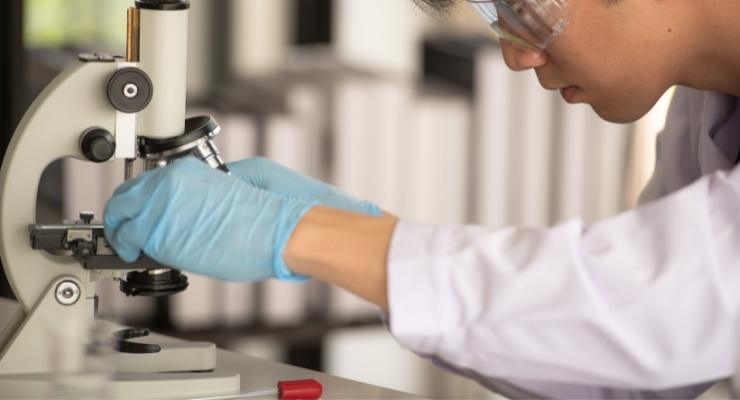Market Updates
Adulterants Prevention Program Releases Best Practices on Adulterated Ingredients
The nonprofit consortium has created a self-regulatory process to remove adulterated or contaminated ingredients from the global supply chain.

By: Mike Montemarano

The ABC-AHP-NCNPR Botanical Adulterants Prevention Program has completed and published its “Best Practices Standardizing Operating Procedure (SOP) for the Disposal/Destruction of Irreparably Defective Articles.”
The best practices are a voluntary standards initiative designed to assist buyers in the herb, dietary supplements, food, cosmetics, and over-the-counter drug industries to be able to remove ingredients from the supply chain if those articles are deemed by valid analytical lab testing to be what’s considered by the new SOP to be an “irreparably defective article.”
By definition, an irreparably defective article can’t be reconditioned or remediated for lawful use. When testing approved by both the buyer and seller concludes that an ingredient is irreparably defective, the buyer should not simply return it to the supplier, but destroy it to prevent its resale into commerce. Notification of certified, lawful destruction shared between the parties is a key part of this agreement.
The SOP is applicable to botanical/herbal ingredients and non-botanical ingredients – it covers any ingredient that might be subject to accidental or intentional adulteration or accidental contamination, in cases where that ingredient can’t be remediated or reconditioned in a way that is acceptable according to federal regulations.
Good Manufacturing Practices require ingredient testing for identity and purity, among other requirements, and, if they don’t meet appropriate specifications, they can’t be released into manufacturing for consumer products. However, many GMPs don’t include guidance regarding what a buyer should do with rejected, irreparable materials.
The new SOP contains: contract language templates for the seller and buyer; a three-way confidentiality agreement among the buyer, seller, and contract analytical laboratory; and frequently-asked questions that arose during public comment periods. The public comment process included recommendations from various industry stakeholders, food and drug law attorneys, analytical chemists, and other botanical, supplement, and regulatory experts.
“Over the past 12 years, BAPP has published 75 extensively peer-reviewed documents that confirm the presence of adulterated, fraudulent ingredients (mis)labeled as herbal raw materials, extracts, and essential oils,” said Mark Blumenthal, founder and executive director of the American Botanical Council and founder and director of BAPP. “These highly constructive BAPP publications are used by many responsible members of the herb industry, in the United States and internationally, to set appropriate quality specifications for their botanical ingredients.
“Now, BAPP has expanded its range of activity by providing responsible members of the food, supplement, cosmetic, and OTC drug industries with this SOP so that they can remove ingredients from the supply chain that should never have been offered for sale in the first place. Ultimately, this results in better quality products reaching consumers.”
Michael D. Levin of Health Business Strategies was the primary consultant and principal author of the SOP. After a successful 23-year career in the pharmaceuticals and pharmacy services industries, Levin has served in executive leadership positions in the dietary supplements and dietary ingredients industries.
“Carefully constructed to fairly protect buyers, suppliers, and analytical laboratories, these best practices provide a cGMP-compliant framework to stop the resale of ‘irreparably defective, and potentially harmful articles’ from being resold into commerce,” said Levin. “Because of the extensive input from a variety of expert industry stakeholders during its development, we expect this SOP to be widely adopted.”
“BAPP, in consultation with a host of industry leaders and experts, has meticulously developed a best practices SOP to address irreparably defective articles,” said Loren Israelsen, president of the United Natural Product Alliance (UNPA) and principal architect of the Dietary Supplements Health and Education Act of 1994.
“As this is a new term, it bears repeating. The BAPP Best Practices SOP for the Disposal/Destruction of Irreparably Defective Articles should become a part of every manufacturer’s cGMP procedures. And while the title may be long, the goal is simple: Stop the resale of IDAs back into the stream of commerce. This is a first, and it is historic. Let us make the most of this tremendous effort to solve an important problem. Now it is up to responsible elements of the industry to adopt this SOP and to begin the important task of removing IDAs from commerce. UNPA will be a leader in promoting the active adoption of this SOP, and we salute BAPP and all those who have worked to make the industry stronger and enhance consumer confidence in dietary supplements.”
The SOP will be formally introduced at SupplySide West in Las Vegas on Wednesday, Nov. 2, from 2 – 3:30 p.m. by expert panelists including representatives from ingredient suppliers, supplement companies, trade associations, certifying organizations, professional medical associations, analytical chemists, industry attorneys, and others.


